Storyteller Matthew Dicks has his storytelling workshop participants take on an assignment he calls Homework for Life. It’s something Matthew engages in too. He likes to create a spreadsheet of “storyworthy” moments throughout the day. Matthew writes down the date and some words to remind him of the events or encounters such as “Started taking yoga” or “Taught Clara about the Rolling Stones while lying in bed with her.” (Clara is his daughter.)
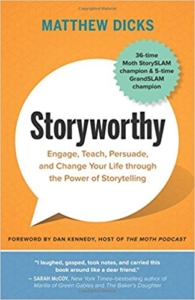 Matthew begins the chapter about Homework for Life in his book, Storyworthy (New World Library, 2018), by describing dinnertime at his house when he asked his wife Elysha what the doctor had said about their three-year-old son Charlie throwing food. Elysha said: “The doctor said that when Charlie throws food, we have to take all the food away from him, and I know that’s going to be hard for you.” Matthew wondered why she thought it was going to be hard for him. She answered after taking a deep breath: “I know that when you were a little boy, you didn’t always have enough food to eat, so taking away food from Charlie is going to be hard for you.”
Matthew begins the chapter about Homework for Life in his book, Storyworthy (New World Library, 2018), by describing dinnertime at his house when he asked his wife Elysha what the doctor had said about their three-year-old son Charlie throwing food. Elysha said: “The doctor said that when Charlie throws food, we have to take all the food away from him, and I know that’s going to be hard for you.” Matthew wondered why she thought it was going to be hard for him. She answered after taking a deep breath: “I know that when you were a little boy, you didn’t always have enough food to eat, so taking away food from Charlie is going to be hard for you.”
Elysha had spent almost ten years with Matthew so she had figured it out from his talking about his childhood. You can see from the description, how heart-opening it is. This is what Matthew calls a “storyworthy” moment.
He said: “We experience moments like this all the time. This one may sound special and unique and maybe even beautiful, but only because I’ve crafted this particular moment into a story. In truth, these moments are everywhere.”
Writing down such moments on the spreadsheet has given Matthew an endless supply of stories. Stories don’t need to rely upon near-death experiences or unlawful imprisonment or homelessness, all of which he’s experienced, to be effective. While the storyworthy moments from the spreadsheet can be short stories in themselves, they can also accumulate so that one can see patterns in a life which can also become stories.
Matthew writes: “In searching for stories, I discovered that my life is filled with them. Filled with precious moments that once seemed decidedly less than precious. Filled with moments that are more storyworthy than I’d ever imagined. I’d just been failing to notice them. Or discounting them. Or ignoring them.” He goes on to say: “As that storytelling lens became more refined and I started seeing stories in my everyday life, stories began welling up from my childhood that I’d long since forgotten. It was like digging into the earth and suddenly striking a geyser.”
For a long time I’ve believed that our stories need to be grounded in the every day. We can’t go back to a past memory and flail about in what could be traumatic territory without having a sense of our feet on the ground in the here and now. This is why I think a writing ceremony with some guidelines is so important on our own and in a circle with others. A safe container helps to lessen anxiety. Also, if we start in the present, with a memory coming in to a current event, we have the opportunity of being on more solid ground.
One of Matthew’s workshop participants, Anne McGrath wrote a blog post on Brevity about “collecting ideas” that “has changed something in my mind and how I am in the world. It has instilled in me a sense of patience, made me see with wonder, be more willing to try new things, and look with fresh, curious eyes. The process of writing has become more important than the outcome or me and I feel fortunate every day that I am able to create something. I have stumbled upon things in New York City I might have missed if I was less attentive – an exhibit of Nabokov’s butterflies at the public library, a baby squirrel fallen from its nest in Central Park, the homeless woman outside the subway station who had been a Jackie Gleason dancer. Visceral stories are floating all around us, waiting to be brought to life.”
Storyworthy is an engaging book and I became very enthused when I read about finding and recording storyworthy moments as it’s a way to appreciate what we have. The moments can become stories or poems or their on their own, American sentences that are like haiku with seventeen syllables.
The fountain splashes the garden mermaid who needs a rock to lean on. (Any more syllables and it would become a Canadian sentence, eh?)
Even without a plan for writing, simply noticing is a valuable practice. “The world slowed down for me,” Matthews says of his practice of doing Homework for Life, sitting down every evening and asking himself: “What is my story from today? What is the thing about today that has made it different from any previous day?”
He offers good advice when he says: “We tell stories to express our hardest, best, most authentic truths.” He says “your story must reflect change over time . . . You must start out as one version of yourself and end as something new. The change can be infinitesimal.” I realized how important that advice is when it comes to the personal essays we write or the poems – anything really.
Often, in a poem, there is a transformative moment – sometimes at the end or sometimes it can be in the middle. The poet has realized something and for the reader, a door opens as well.
Stand-up comedians are funny and storytellers are too but they include those poignant, transformative moments that Matthew suggests we collect. He says: “Every great story ever told is essentially about a five-second moment in the life of a human being, and the purpose of the story is to bring that moment to the greatest clarity possible.” Brilliant I’d say as it’s so right on. I loved this book!
There are “permissible lies” in storytelling and they apply to poetry writing as well. For instance, you can omit the names of people that don’t fulfill a role in your story or “serve your five-second moment” Matthew would say. You can compress time as there is never room for “needless complexity.” Progression is allowed, changing the order of events to make the story “more emotionally satisfying or comprehensible to the listener.”
Storytelling is “about bridging the gap between you and another person by creating a space of authenticity, vulnerability and universal truth,” Matthew says. A story isn’t about the big events such as the time Matthew was nearly killed in a car accident, although that is part of his story “This is Going to Suck.” The story is about “the small, relatable, comprehensible moment in our larger stories. We must find the piece of the story that people can connect to, relate to, and understand.”
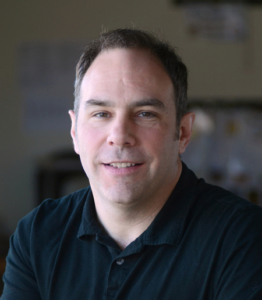 Matthew Dicks is a bestselling novelist, thirty-six time Moth StorySLAM champion, and five-time GrandSLAM champion. In addition to his widespread teaching, writing, and performing, he co-founded (with his wife), Speak Up, which produces sold-out storytelling performances throughout Connecticut, Massachusetts, and New York at least once a month. He’s also an elementary-school teacher, speaking coach, blogger, wedding DJ, a minister, a life coach, and, according to the bio in his book, “a Lord of Sealand.” He’s married to fellow teacher Elysha and they have two children, Clara and Charlie. They live in Newington, Connecticut. Have a look at his website at www.matthewdicks.com and you can connect to his storytelling gigs on You Tube. Or just google his name and you’ll find his performances.
Matthew Dicks is a bestselling novelist, thirty-six time Moth StorySLAM champion, and five-time GrandSLAM champion. In addition to his widespread teaching, writing, and performing, he co-founded (with his wife), Speak Up, which produces sold-out storytelling performances throughout Connecticut, Massachusetts, and New York at least once a month. He’s also an elementary-school teacher, speaking coach, blogger, wedding DJ, a minister, a life coach, and, according to the bio in his book, “a Lord of Sealand.” He’s married to fellow teacher Elysha and they have two children, Clara and Charlie. They live in Newington, Connecticut. Have a look at his website at www.matthewdicks.com and you can connect to his storytelling gigs on You Tube. Or just google his name and you’ll find his performances.
There are other exercises in the book to help you find your story, lots of good advice about crafting your story and tips on telling your story. I like this advice: “Rather than telling a story of your full and complete accomplishment, tell the story of a small part of the success. Tell about a small step. Feel free to allude to the better days that may lie ahead, but don’t try to tell everything. Small steps only.”
I’m finding I’m listening to people’s stories, reading poems, watching movies (Matthew has examples in his book of five-second moments in movies) with an eye and an ear out for those transformative moments. I suggest we all look for those little five-second moments hidden inside big moments and do Homework for Life.
Matthew Dicks believes anyone can become a storyteller. “You don’t have to die or be arrested or live on the streets to be a great storyteller,” Matthew says. “You don’t need to travel to exotic locations or meet famous people. You simply need to find a moment in your life when something about you changed in a profound way. Your life is filled with these five second moments. Find them, and make them the stories you tell.”



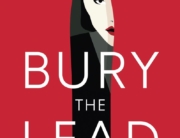


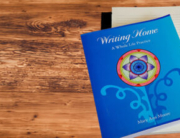







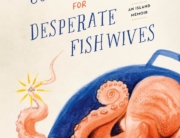
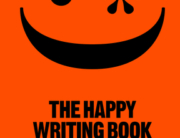

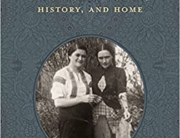


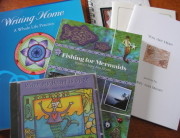



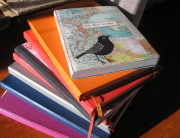
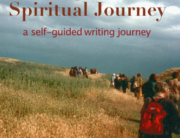

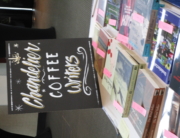
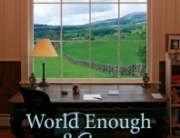
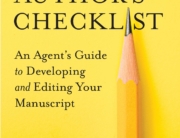
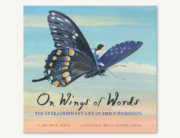


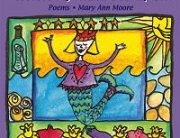
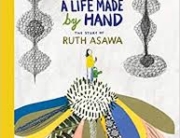
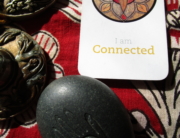


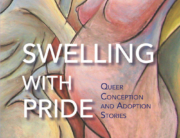


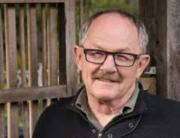
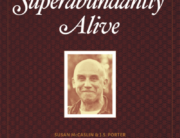



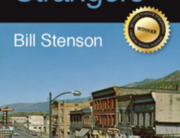
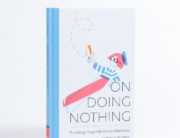



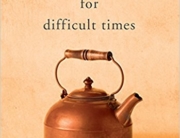

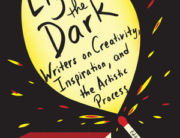
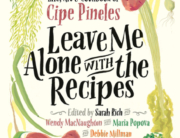
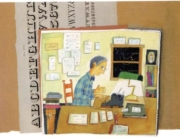























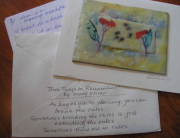




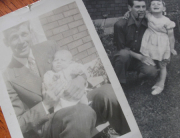




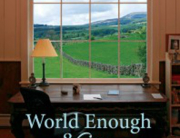




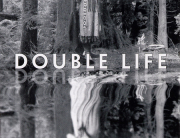

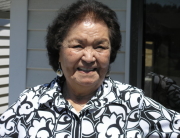
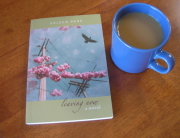




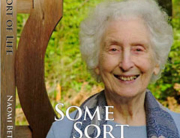

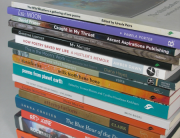

Mary Ann, I so love this post. As a writer, storyteller, and human being living an ordinary life I can relate to so much of what you have shared. You have pulled together the ideas in ways perfectly interweaving your own experiences as a writer and facilitator of writing life with what you offer from Mathew Dick. Brilliant! I can’t wait to read more.